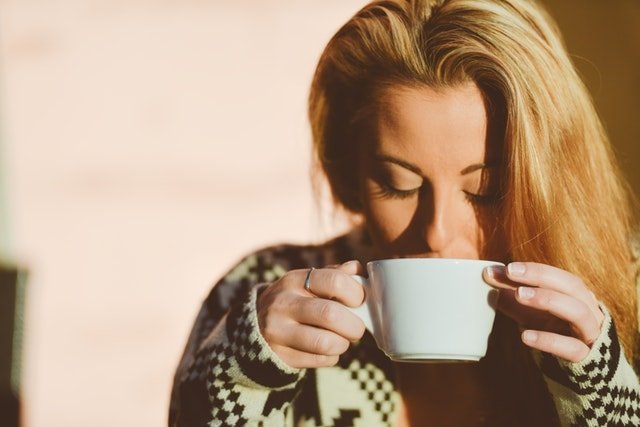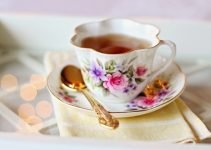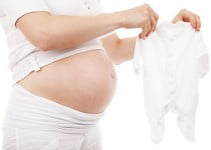 Pregnancy has you craving so many things. Some which you’ve never enjoyed your entire life!
Pregnancy has you craving so many things. Some which you’ve never enjoyed your entire life!
What is it that you last craved?
Was it waffles? Chocolate? Black forest cake? Or was it simply a sip of hot delicious aromatic tea?
There are so many warnings on taking caffeinated drinks during pregnancy that most moms-to-be hesitate to consume their favorite tea.
If you enjoy taking tea and are expectant, you’re of course worried about whether it’s safe to consume tea while pregnant.
And if so, which specific teas are safe?
Tea has a really Zen reputation.
However, most types contain some amount of your favorite stimulant-caffeine.
This means that each cup of tea you have every morning contributes towards the daily caffeine limit.
Although there have been no conclusive studies done to determine the effects of caffeine on the pregnancy, there seems to be evidence linking it to preterm labor, some birth defects, and miscarriage.
Caffeine normally crosses the placenta and can adversely affect your baby’s digestive system which is immature and not well equipped to handle caffeine.
Therefore, the American College of Obstetricians and Gynecologists advises that 200 milligrams (mg) per day is the maximum intake of caffeine that a pregnant woman should consume.
But there’s good news. Tea is ‘safer’ compared to coffee which means that you can overindulge just a little more.
In relatable terms, It simply means that you can consume up to four 12 –ounce cups of caffeinated tea and still be under 200 mg compared to taking only one 12-ounce cup of coffee for the day.
Types of Tea
To understand what is safe to sip and what’s not, it’s essential that we first understand the types of tea.
1. Real Tea
Tea purists only know one type of tea, the real tea.
It is extracted from one type of plant and different kinds are produced by altering the tea leaf’s method of processing. They include black tea, oolong tea, and green tea, which are all created from the same plant.
Naturally, these teas are caffeinated but they can be changed into decaf through extra processing.
2. Herbal Tea
These teas are made from flowers, leaves, stems, barks and other parts of different plants.
Rather than steep the leaves in hot water, the tea is made by boiling those herbs directly.
This method is commonly used when preparing tea from stems, barks, or from plant parts considered denser. Herbal teas are naturally decaffeinated.
Drinking Green Tea While Pregnant
Officially, no advice has been given against consuming green tea. Just like the other real teas; this tea contains caffeine.
Too much green tea is however not recommended due to its caffeine content- it contains a little less caffeine compared to black tea.
It is advisable to consume up to four cups in a day.
This limit is inclusive of all caffeine sources including soft drinks, coffee, energy drinks, chocolate and cola in your daily amount.
Green tea is a health-promotion drink due to its high content in antioxidants which can protect the mom-to-be against cell damage, high blood pressure, type 2 diabetes and heart disease.
It’s also good for your bones and teeth and helps maintain a healthy immune system.
However, if you drink high amounts if this beverage, it may prevent proper absorption of folic acid which is an essential nutrient especially during your first trimester.
A small study suggested the development of neural tube defects including spina bifida in babies if their moms consume too much green tea close to conception.
It is also not advisable to take this tea with meals. This is because it can make it hard for your body to absorb iron from foods that are non-meat.
Drinking Herbal Teas during Pregnancy
You should not experience unpleasant symptoms if you stick to herbal teas that are on the safe list and they include:
Ginger tea
It eases morning sickness and nausea, relieves stomach problems, and enhances healthier digestion.
Raspberry leaf tea
It contains high amounts of calcium and magnesium, prepares your uterus for labor and prevents post-partum hemorrhage.
It’s generally safe for expectant women, although some health care providers advise that it’s only taken after the first trimester.
Peppermint tea
It relieves flatulence and nausea and relaxes your stomach.
Dandelion leaf tea
It is rich in calcium, iron and vitamin A.
It keeps your liver healthy and prevents excess water retention.
Lemon balm tea
It is recommended due to its ability to relieve irritability and anxiety, and its calming effects
Nettle tea
It is typically a health enhancer with high amounts of Vitamin A, C, K, iron, potassium, and calcium.
Although it is generally safe to consume while pregnant, it is advisable to carefully read the label and check with your doctor since it can have health effects depending on the plant part used to prepare the tea.
Rooibos tea
This is probably the best tea to take while pregnant since it contains a lot of magnesium, calcium, and antioxidants.
It’s 100% caffeine free and counters acid reflux, helps with digestion, prevents constipation and relieves the body’s reaction to allergens.
It also has benefits linked to depression, vomiting, skin problems, liver’s function, heartburn and the fluctuating blood sugar levels during pregnancy.
It is, however, essential to check the label since some blends that contain rooibos may incorporate some unsafe ingredients.
Herbs and teas you should, however, avoid during pregnancy include:
- Don Quai tea which causes uterine contraction leading to preterm birth or miscarriage
- Ginseng tea can cause growth impairment and birth defects.
- Pennyroyal is infamous for miscarriages.
- Licorice tea is estrogenic which can lead to fetal abnormalities and preterm birth.
- Black and blue cohosh will also lead to miscarriage and preterm birth
Drinking Chamomile Tea during Pregnancy
There is no adequate medical data that can back the safe use of chamomile tea while expectant.
The tea contains small amounts of coumarin which is known to cause blood thinning effects, and although it only affects your blood if taken in large quantities over a long time, it is considered unsafe.
While expectant, it is advisable to first talk to your doctor about the dosage.
Taking one or two cups is fine but more than this could lead to side effects such as:
- Increased risk of miscarriage
- Drowsiness- it is safe to avoid this beverage especially if you’re about to drive or take a walk on the streets.
- It induces vomiting especially if you’re on drugs that may induce vomiting or nausea or you’re already feeling nauseous.
- You should be careful if you’re sensitive and have suffered allergies prior.
Allergies in relation to the daisy plant are especially serious and you should be wary of consuming any chamomile plant extract even in the form of herbal tea. - If you’re opting for a C–section, stop taking the tea two weeks before the procedure. Chamomile extracts could cause adverse reactions during the surgery since they can interact with the anesthetic drugs administered.
In conclusion, most teas other than the ones you should avoid are considered safe- if taken in moderation.
If uncertain whether or not to give up your favorite tea, ask your healthcare provider and they can give you a professional opinion.
Alternatively, you can always look up the tea and its safety profile before consuming it.
Once you get the approval, go ahead and brew yourself and your baby a flavorful hot cup of tea!
Image: Pixabay



